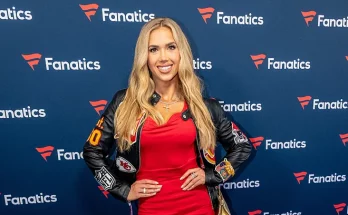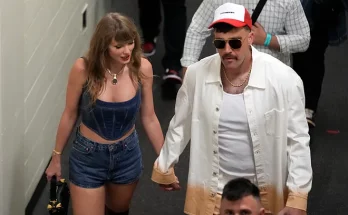When Larissa Jacquez first stepped onto a basketball court in Eagle Pass, Texas, she probably wasn’t thinking about blue blood programs, Atlantic Coast Conference championships, or Cameron Indoor Stadium. Like most kids who fall in love with the game in small Texas towns, her earliest aspirations were more grounded: play hard, get better, win for your school, make your family proud. But dreams, when met with tireless effort and extraordinary talent, tend to grow. And now, Jacquez is heading from the border town of Eagle Pass to the storied hardwood of Durham, North Carolina—officially transferring from the University of the Incarnate Word to Duke University and joining the Blue Devils women’s basketball program.
The move marks a monumental leap, not just geographically or competitively, but symbolically—a rising star from a region often overlooked by national recruiters, now bound for one of college basketball’s most prestigious destinations. It’s a story of persistence, growth, and a hunger for something bigger.
At Incarnate Word, Jacquez quickly made a name for herself as one of the most dynamic guards in the Southland Conference. The 5-foot-7 playmaker combined agility, court vision, and an unteachable toughness that made her indispensable to the Cardinals. Whether slicing through defenders off the dribble or knocking down crucial jumpers, Jacquez’s performances were rarely quiet. She averaged over 15 points per game during her sophomore campaign, while adding 4 rebounds and 3 assists—a stat line that only hints at her on-court impact. But what caught the eye of coaches beyond the mid-major world was her poise under pressure and leadership in big moments.
Recruiters from larger programs started paying attention. The transfer portal has become a new frontier in college athletics, where opportunity and ambition often collide. For Jacquez, the decision wasn’t about leaving something behind; it was about stepping into a challenge worthy of her growth.
“I’m incredibly grateful for my time at UIW. It shaped me into the player I am today,” Jacquez said in a statement following her transfer announcement. “But I’ve always believed in aiming high, and Duke is a place where I can push myself to the absolute limit—on and off the court.”
Indeed, the Blue Devils have built a reputation for elite development under head coach Kara Lawson, a former WNBA player and Olympian who’s helped reshape the program with an emphasis on toughness, IQ, and fundamentals. Duke isn’t just any Power Five school—it’s a place where the banners on the wall and the ghosts of legends past loom large. It’s where expectations meet legacy. And it’s where Jacquez intends to take the next major step in her basketball journey.
Lawson, who has transformed Duke into a national contender once again, praised Jacquez’s competitive spirit and versatility.
“Larissa is the kind of player who elevates everyone around her,” Lawson said. “She brings a fearless mentality, a strong work ethic, and she knows how to win. We believe she has the tools and mindset to thrive in the ACC.”
Jacquez’s route to Tobacco Road is unconventional, but perhaps all the more inspiring because of it. Eagle Pass isn’t known as a basketball hotbed. The border town, nestled along the Rio Grande, is better recognized for its football traditions and small-town grit. Yet from an early age, Jacquez stood out. Coaches noticed her court awareness and natural feel for the game. More importantly, they noticed her dedication.
“She was the first in the gym and the last to leave, every single day,” said Manny Ortiz, her high school coach at Eagle Pass High. “You don’t see that kind of drive in many kids, and especially not consistently over four years. She willed herself into becoming something special.”
By the time she graduated, Jacquez had not only set scoring records but helped raise the profile of girls’ basketball in her community. Her success at UIW only reinforced the belief that talent can flourish anywhere—with the right mindset and work ethic.
Transferring from a mid-major to a Power Five is never seamless. The level of physicality, speed, and depth of competition in the ACC is a clear step up. But Jacquez has never shied away from challenges. At UIW, she routinely played above her size and guarded bigger, faster players. She learned how to control tempo, how to lead, and how to impact games even when her shot wasn’t falling. At Duke, those skills will be put to the test against some of the best players in the country.
What sets Jacquez apart isn’t just her on-court production—it’s the intangibles. Teammates and coaches alike describe her as an anchor in the locker room: humble but vocal, serious but encouraging, a natural leader. She watches film obsessively, takes feedback with maturity, and demands excellence from herself in practice. Those qualities matter in a place like Duke, where culture often defines success as much as talent.
There’s also the academic piece. Duke is one of the top universities in the country, and Jacquez—who is majoring in psychology—has always valued the balance between athletics and academics. Her family has spoken often about how important education was growing up, and Larissa herself has emphasized that basketball, while her passion, is also a pathway to a bigger life purpose.
Her parents, both educators, supported her transfer decision wholeheartedly. “We always told her: chase your dreams, but do it with intention,” said her father, Arturo Jacquez. “Duke is a place where she can do both—be challenged in the classroom and compete at the highest level.”
Now, she enters a Duke program that finished with a strong showing in the ACC last season and has legitimate NCAA tournament ambitions. With veteran leadership and a top-tier recruiting class, the Blue Devils are poised to make a run, and Jacquez’s arrival only adds to the depth and dynamism of the roster.
While it remains to be seen exactly how Lawson will deploy her, early expectations are that Jacquez will play both on and off the ball, providing scoring punch and defensive tenacity off the bench or in a starting combo guard role. Her ability to read defenses and create offense in the halfcourt makes her a valuable asset, particularly in a conference known for physical play and defensive intensity.
In many ways, her story mirrors that of other great underdog-turned-star narratives. She didn’t come from a major AAU circuit, wasn’t highly ranked out of high school, and had to earn every opportunity the hard way. And now, she’s walking into a building that’s housed legends, from Grant Hill to JJ Redick to Alana Beard—ready to write her own chapter in Duke basketball history.
“I know I have to prove myself all over again,” Jacquez said in a recent interview. “But that’s what excites me. I want to earn my place. I want to compete every single day.”
For young athletes from small towns across Texas—and especially from border communities like Eagle Pass—her journey is already a beacon. It’s proof that the path doesn’t have to be linear, and that talent and work ethic can break through even the toughest barriers.
As she begins this new chapter in Durham, thousands of miles from the place where she first picked up a ball, Larissa Jacquez carries more than just her own dreams. She carries the pride of her hometown, the hopes of her teammates past and future, and the belief that greatness can come from anywhere—even from the far edge of Texas, all the way to Tobacco Road.



